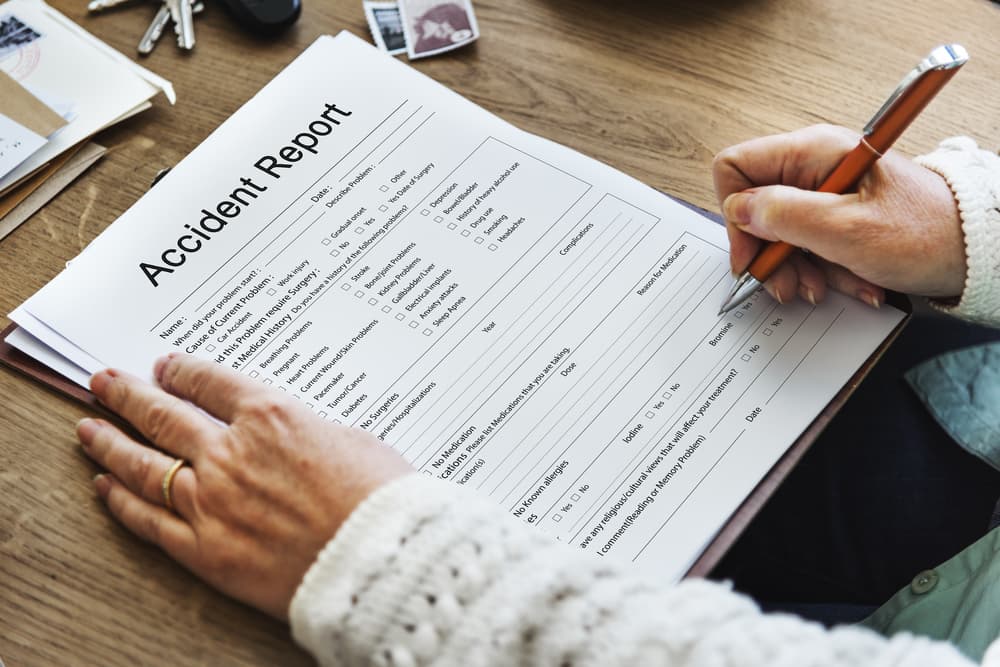If a scooter or bikeshare rider has damaged your car, you have three primary avenues for seeking payment for repairs:
- The rider's personal insurance
- The scooter or bikeshare company's insurance
- Your own auto insurance policy
Determining which one applies might not always be straightforward. The process is frequently complicated because the rider may be uninsured or unidentified, and the rental companies’ user agreements frequently attempt to shift all liability away from them. Speaking with a bikeshare or scooter accident lawyer for drivers can help you identify the right path and protect your rights.
If you have a question about what happened to your car, call our team at LegalRideshare Injury Lawyers for a free consultation at (312) 767-7950.
The Unseen Risk: Why Micromobility Accidents Are on the Rise
The New Reality on City Streets
The convenience of e-scooters and bikeshare programs has changed how people move through cities like Chicago. But this change has come with a significant increase in accidents.
Recent data shows a startling trend in micromobility incidents. One report highlighted that between 2023 and 2024, the number of e-scooter injuries surged by 80% to over 115,000. Similarly, a study from UC San Francisco found that e-bike injuries doubled annually between 2017 and 2022.
More Riders, More Risk to Your Property
These incidents also represent potential collisions with other vehicles.
As ridership grows, so does the likelihood of encounters with parked or moving cars, leading to dents, scratches, and broken mirrors. This reality is underscored by a U.S. Consumer Product Safety Commission (CPSC) report, which found that injuries from all micromobility devices increased by nearly 21% in 2022 alone. This sheer volume of incidents means a greater chance of property damage for car owners.
A Local Problem
In Chicago, the rise in crashes has forced city officials to modify regulations for these rental programs, specifically addressing incidents that result in property damage claims.
Who Is Legally Responsible for the Damage to Your Car?
The legal concept of negligence—a failure to use reasonable care—is what we must prove.
The Rider's Responsibility
In almost all cases, the rider is the one who will probably be at fault.
Direct Liability
The person operating the scooter or bike is the one who caused the damage. In a perfect world, they are the primary responsible party.
If the rider was behaving carelessly—for example, weaving through traffic, riding on a sidewalk in a business district in violation of Chicago Municipal Code 9-52-070, or otherwise violating traffic laws as outlined in the Illinois Vehicle Code—they are likely negligent under these laws.
Where Does the Money Come From?
An individual rider might pay through:
- Homeowner's or Renter's Insurance: Some of these policies include personal liability coverage that may apply to damage they cause while operating a rental scooter. This is a surprise to many, both the rider and the person whose car was damaged.
- Out-of-Pocket: If the rider has no insurance, they are personally responsible for the repair costs. However, collecting this money is difficult without legal assistance.
Can You Hold the Scooter or Bikeshare Company Liable?
The User Agreement Shield
Companies like Lime, Bird, and Divvy include terms of service that nearly always place liability squarely on the rider. When a rider signs up, they agree to be responsible for any damage they cause. This is why the company is almost never legally at fault, which leads many drivers to ask: can you sue the scooter company after your car is damaged?
When Might the Company Be Liable
There are exceptions. The company could bear some responsibility under a few specific circumstances.
- Faulty Equipment: If the accident was caused by a mechanical failure—like malfunctioning brakes or a broken handlebar—the company is held responsible under the principle of strict liability. This legal concept holds a company responsible for harm caused by a defective product.
- Negligent Maintenance: If the company failed to properly maintain its fleet and that failure led to the crash, they may share in the fault.
- Vicarious Liability: In some rare cases, a legal doctrine called vicarious liability could apply, but this is uncommon in scooter-share cases because riders are not employees. It's a concept where one party is held responsible for the actions of another based on their relationship.
What About Your Own Insurance Policy?
Your Own Coverage as a Backstop
This is the most reliable, though not always ideal, path to getting your car fixed.
- Collision Coverage: If you have this on your policy, it will pay for the repairs to your car, regardless of who was at fault. You will have to pay your deductible, which you may get back later if the at-fault rider or their insurance pays up.
- Uninsured/Underinsured Motorist (UM/UIM) Property Damage Coverage: In some states, this coverage may apply if you are hit by someone without insurance. We would need to review your specific policy to see if a scooter or bikeshare rider qualifies as an "uninsured motorist."
Your Action Plan: Steps to Take from Home After the Incident

Sitting at home looking at the damage to your car, it's easy to feel powerless. But there are concrete steps to take to start the process of getting it repaired.
Step 1: Organize Your Evidence
Photos and Videos are Your Foundation
The pictures you took at the scene are your starting point. Now, organize them.
- Create a dedicated folder on your computer or phone. Label images clearly (e.g., "damage_to_driver_door.jpg," "scooter_ID_number.jpg").
- Look for details you might have missed: Are there any nearby security cameras on buildings or doorbells that might have captured the event? Make a note of their locations.
Write Down Everything
Your memory fades quickly. Write a detailed account of what happened.
- Include the date, time, and exact location.
- Describe the rider: what they were wearing, their approximate age, anything they said.
- Describe the scooter or bike: its color, any visible ID or QR code, and the company name (Lime, Divvy, etc.).
Step 2: Formally Report the Incident
Contact the Scooter/Bikeshare Company
Find the customer service contact information for the company involved. This is usually available through their app or website.
- File a formal report. Provide the date, time, location, and the scooter/bike's identification number. State clearly that their rider damaged your vehicle and you are seeking compensation for repairs.
- Keep a record of this communication, including a confirmation number or email. The company identifies the rider who was using that specific device at that time.
File a Police Report
Even for what seems like minor damage, a police report creates an official record of the incident. You typically file this online or at a local police station. This report is a key piece of evidence for insurance claims.
Step 3: Notify Your Insurance Company
Report the incident to your own insurance agent promptly.
- Explain exactly what happened. Let them know you have reported it to the rental company.
- Your insurer will open a claim and explain your options based on your coverage. They may try to pursue the at-fault rider or the rental company on your behalf through a process called subrogation.
Step 4: Get a Repair Estimate
Take your car to a reputable body shop (or two) to get a written estimate for the repairs.
This document is the basis of your demand for payment from the responsible party. It quantifies your tort, which is the civil wrong you suffered.
What Happens if the Rider Disappeared or Is Uninsured?
A rider scrapes your car, panics, and simply rides away. Or, you return to your parked car to find damage and a scooter left nearby.
Your Options in a Difficult Situation
- Lean on Your Own Insurance: This is where having collision coverage becomes so important. While you'll have to pay the deductible upfront, it provides a direct path to getting your car fixed without a lengthy fight. Your insurance company has resources to investigate and may still try to identify and locate the rider to recover your deductible.
- Uninsured Motorist Coverage: As mentioned earlier, we would examine your policy to see if this applies. The definition of "motorist" is key.
- Investigating the "John Doe" Rider: Even if the rider is gone, they aren't necessarily a ghost. The scooter or bike itself is a key piece of evidence. The rental company's data will show who had it rented at the exact time of the incident, so make sure you report the device's ID number to the company. We pressure the company to release the identity of the user who rented the device at the time your car was damaged.
The Issue of Comparative Faul
Insurance companies will conduct a thorough investigation, looking for any evidence to argue you were partially at fault. For example, they might claim your car was parked illegally.
In Illinois, a legal rule known as comparative fault means that if you are found partially to blame, your compensation is reduced by your percentage of fault. Our role is to ensure no amount of blame is unjustly put on you.
How Our Firm Handles These Property Damage Claims
The claims process is tedious and filled with paperwork. It’s easy to get frustrated, especially when dealing with a large corporation or an unresponsive individual.
Our Role in Your Recovery
Our practice focuses on incidents involving rideshare and micromobility services. When we handle a property damage claim like yours, our work includes:
- Leading the Investigation: We take over the process of gathering evidence, including contacting potential witnesses and seeking out any available surveillance footage.
- Managing All Communication: We handle all correspondence with the insurance companies and the scooter or bikeshare company. You won't have to spend your time on the phone arguing your case.
- Identifying All Sources of Compensation: We analyze the rider's potential insurance coverage, the rental company's obligations, and your own policy to build the strongest strategy for getting your repair bills paid.
- Holding Companies Accountable: We know the arguments these companies make to avoid paying claims. We are prepared to counter them, whether it's by proving their equipment was faulty or by compelling them to identify the at-fault rider. Our goal is to pursue the maximum compensation available for your damages.
Frequently Asked Questions About Vehicle Damage from Scooters and Bikes
Do I have to pay my deductible if the scooter rider was clearly at fault?
Initially, you will likely have to pay your deductible to get your car repaired through your own collision coverage. However, your insurance company will attempt to recover that cost from the at-fault rider, and if they are successful, you will be reimbursed.
What if a teenager riding a scooter hit my car?
If the rider was a minor, their parents may be held legally responsible for the damages. The claim is potentially made against the parents' homeowner's insurance policy.
How long do I have to file a claim in Illinois?
For property damage in Illinois, the statute of limitations is generally five years. However, it is always best to act immediately while evidence is fresh and the incident is clear in everyone's mind.
Will filing a claim on my own insurance make my rates go up?
If the accident was not your fault, your rates should not increase. Reporting the incident and identifying the at-fault party helps protect you from premium hikes.
Let Us Handle the Hassle and Get Your Car Repaired

Bryant Greening, Bikeshare Accident Lawyer in Chicago
Your focus should be on your life, not on chasing down payments for a damaged car. Let our team of scooter and bikeshare injury lawyers at LegalRideshare Injury Lawyers take on the burden of the claims process.
We have years of experience handling these specific types of cases and are ready to put that knowledge to work for you.
For a free, no-obligation review of your case, call us now at (312) 767-7950.